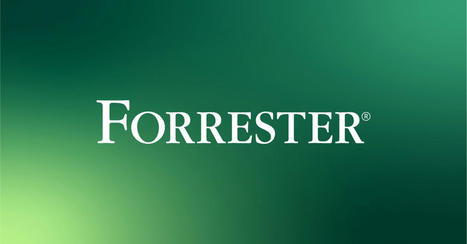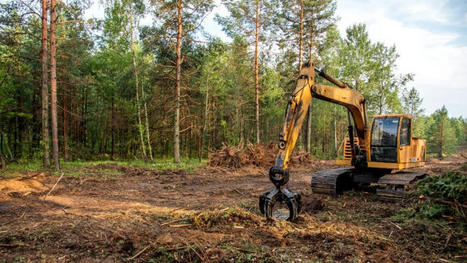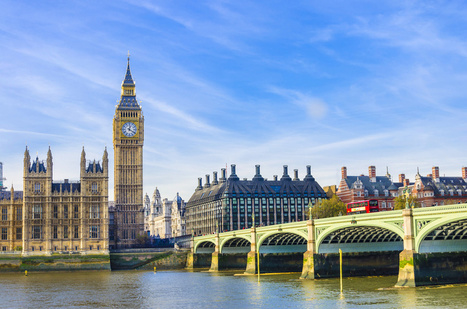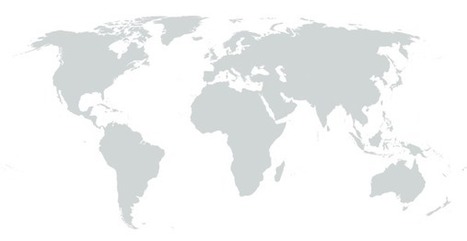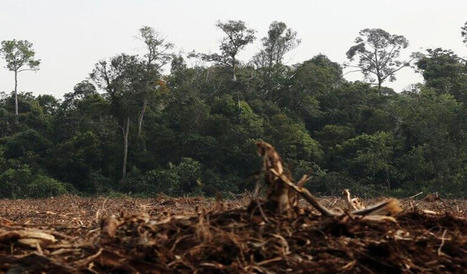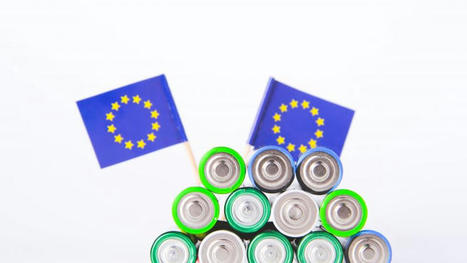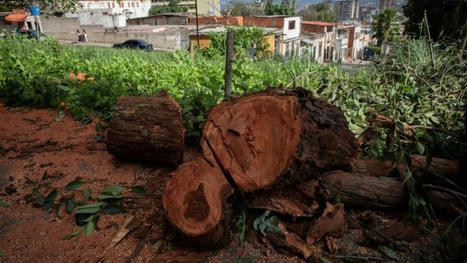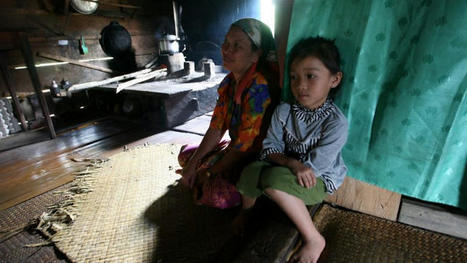 Your new post is loading...
 Your new post is loading...
Big changes are coming to corporate sustainability reporting in the European Union and soon in the rest of the world. Starting in fiscal year 2024, the first wave of in-scope companies will be required to disclose ESG impacts under the EU’s Corporate Sustainability Reporting Directive (CSRD). The CSRD overhauls the 2014 Non-Financial Reporting Directive — the EU’s current sustainability framework — and aims to improve the quality of data for investors while helping the EU meet its policy goals under the European Green Deal.
Via EcoVadis
The obligation to comply with supply chain regulations from the EU Supply Chain Act to a draft of US supply chain due diligence laws is spurring firms to rethink sourcing, supply chain, manufacturing policies, and supporting applications. In addition, the US and the EU alone are currently spending $1.4 trillion on environmental sustainability and climate adaptation. There’s also $17.5 billion in VC funding for green tech, and the global market for green financial instruments is $658 billion. These regulatory and investment initiatives provide your firm with opportunities to reassess your supply chain to focus on enhancing sustainability of critical processes such as monitoring supplier labor practices and diversifying supplier geographical risk.
Via EcoVadis
The European Parliament is in support of a new law that would ban exports of plastic waste to non-OECD countries, and phase out the export of plastic waste to OECD countries within 4 years. The Organisation for Economic Co-operation and Development (OECD) is an international organization that works to build better policies and shape policies that foster prosperity, equality, opportunity, and well-being for all.
The EU anticipates positive changes in circularity, resource efficiency, and zero pollution goals as a result of this new law.
The proposal argues for the prohibition of shipments within the EU of all wastes destined for disposal, except if authorized in what it describes as “limited and well-justified cases”.
Via EcoVadis
The European Parliament and EU member states reached an agreement late on Thursday (10 November) on a new law regulating the contribution of the forestry and land use sector to the EU’s 2030 climate goals.
The land use, land use change and forestry (LULUCF) sector covers the use of soils, trees, plants, biomass and timber and is responsible for emitting and absorbing CO2 from the atmosphere.
Under the political agreement reached yesterday, the EU will aim to remove 310 million tonnes of net CO2 equivalent from LULUCF sectors by 2030.
“CO2 carbon sinks can help us achieve our climate goals, including carbon neutrality, and thus protecting our planet from the fatal negative consequences of climate change,” said Marian Jurečka, the Czech minister of the environment whose country currently holds the EU’s rotating six-month presidency.
“At the same time, the deal ensures different circumstances in each member state are taken into account when setting further ambition towards the 2030 targets,” Jurečka said in a statement.
Via EcoVadis
Final negotiations have begun between the European Council, Parliament and Commission on a regulation that will ban products from the EU market that result from deforestation.
It will impact what is placed on supermarket shelves, and, importantly, retailers might be held accountable.
The proposal focuses on coffee, cacao, cattle, palm oil, soy and wood products. Among these commodities, the palm oil sector is at the forefront of sustainability, reaching 93% uptake of certified sustainable palm oil in Europe, even before legislation.
The core of the proposal requires that only products that are both legally produced and demonstrably free from deforestation should be allowed on the EU market.
To guarantee this, companies must submit a due diligence statement which states that the product is not only deforestation-free but also shows the exact plot of land where it originated.
This can be achieved by making the first importer (operator) responsible for this due diligence statement.
All subsequent actors who handle the product commercially (traders), such as retailers, would then ensure that the information they receive from the operator is correct.
Via EcoVadis
With 420 million hectares of forest cover lost in the past 30 years, the debate on deforestation and traceability in the cocoa supply chain took up the last day of the ECA Cocoa Forum 2022, held in Rome.
While the forthcoming European Union regulation is designed to protect citizens with a guarantee that the products they buy are not contributing to destroying forests around the world, the cocoa sector is well aware that it has to become more transparent in the whole of its supply change, with strict traceability linking a plot of land from where the cocoa beans originate from.
New due diligence rules imposed by the EU will be applicable to all operators, and delegates heard discussions are ongoing with individual countries including Cote d’Ivoire and Ghana, the two biggest cocoa producers, to create a benchmark system within the legal framework of their governments.
Via EcoVadis
A new European Parliament report sets out recommendations for sustainable corporate governance.
The present voluntary due-diligence regime on sustainability is inadequate.
Any mandatory regime must still leave room for businesses to tailor their own path to sustainability.
Via EcoVadis
On July 14th the European Commission published a new set of climate change proposals aimed at bringing the bloc closer to its 2030 goal to reduce emissions by 55% (from its 1990 levels) and eventually become completely climate neutral by 2050.
The far reaching proposals cover a number of areas, expanding on past commitments and also introducing a new carbon tariff on materials such as steel, aluminium, and concrete coming from abroad. Some changes include:
- Stricter emission limits on cars, with the aim to end all petrol and diesel vehicle sales by 2035
- A revision of the EU Emissions Trading System (EU ETS) to reduce greenhouse gas emissions from the power sector, industry, and flights, including a tax on aviation fuel
- More ambitious targets for expanding renewable energy, including a tax holiday for low-carbon alternatives
- New national targets for sectors outside emissions trading, such as transport, buildings and agriculture
Via EcoVadis
European Union countries on Monday gave the final seal of approval to a law to make the bloc's greenhouse gas emissions targets legally binding, as EU policymakers prepare a huge new package of policies to fight climate change.
Negotiators from Parliament and EU member states reached a deal in April on the climate law, which sets targets to reduce net EU emissions by 55% by 2030, from 1990 levels, and eliminate them by 2050.
Via EcoVadis
The Fifth Money Laundering Directive is proceeding along the European Union’s legislative process. On 30 November 2016, the Presidency of the Council of Europe (which comprises Ministers from the 28 EU Member States) published a third Presidency Compromise text. This reflects amendments made by the Slovak Presidency in an attempt to reach a common agreed position. This may open the way to negotiations with the EU Parliament whose rapporteurs published a draft report on 7 November 2016 setting out their proposed amendments.
Via EcoVadis
The Regulation, as agreed by the EU Institutions, is set to ensure sustainable sourcing for more than 95% of all EU imports of tin, tantalum, tungsten and gold, which will be covered by due diligence provisions as of 1 January 2021.
In the meantime, the Commission and Member States will work to make sure that the necessary structures are in place to ensure EU-wide implementation.
Via EcoVadis
|
The EU Corporate Sustainability Due Diligence Directive (CSDDD) fits in the trend of emerging sustainability regulations across the globe.
Despite uncertainty over the scope of the directive and the final text to be agreed by the EU lawmakers, companies and institutions should start thinking about testing their current compliance programmes and policies and how, if necessary, they can amend them.
It will be important to monitor legislative developments closely and to start making all possible preparations for the eventual implementation of the CSDDD.
Via EcoVadis
A law passed by the European Parliament requires companies working in cattle, cocoa, coffee, palm oil, rubber, soy and wood to demonstrate their products aren’t sourced to deforested land or land with forest degradation, or else risk heavy fines.
Companies will have to submit “due diligence” reports showing they took proper steps to verify the origins of their products while also complying with countries’ local regulations on human rights and impacts on Indigenous people.
Critics say the legislation may still lack the teeth to prevent deforestation, especially if political pressure from traders forces EU countries to overlook their noncompliance with the new regulations.
Via EcoVadis
As EU member states close in on a common negotiating position on the Corporate Sustainability Due Diligence Directive (CSDDD), they are fighting over whether companies should do due diligence for their entire value chain or just the supply chain.
The directive initially proposed by the Commission on 23 February 2022 would require member states to introduce legislation making companies responsible for violations of human rights and environmental standards along its entire value chain.
This would mean that a company would have to conduct due diligence on its suppliers and clients, and it could also be held liable for how its product is used and disposed of.
Via EcoVadis
The new EU battery regulation is a top priority for all EU institutions. It defines the regulatory framework for the ambitions of the European Commission and member states to establish a full EV batteries value chain in Europe. It is therefore remarkable that – despite all EU institutions committing to find compromises swiftly – it will have taken over two years for the new regulation to be adopted and enter into force.
Complex and ambitious
The drafting of the regulation took longer than anticipated because of the complexity of both the proposal and the EV battery value chain as well as the desire to regulate all steps from cradle to gate – from mining over manufacturing, and use, to the end-of-life management. Furthermore, covering a wide range of dimensions (technical, environmental, economic, and social) has turned out to be highly ambitious.
The other aspect to consider is the conceptual idea behind the new battery regulation. It is seen as a blueprint for future EU product legislation, establishing a digital product passport with all its complexities and covering all steps of the product life cycle. Getting things right from the start is therefore of critical importance for all EU institutions and requires intensive consultation.
Via EcoVadis
Imports of 14 types of commodities into the European Union will soon have to be verified for possible association with deforestation in the countries in which they were produced.
That’s the key provision in a bill passed on Sept. 13 by the European Parliament, which initially targeted soy, beef, palm oil, timber, cocoa, and coffee, but now also includes pork, lamb and goat meat, as well as poultry, corn, rubber, charcoal, and printed paper.
The bill still needs the approval of the Council of the EU and the national parliaments of the 27 countries in the bloc, but is already considered a historic step against deforestation.
In Brazil, experts have welcomed the bill as a means of tackling the demand-side pressures driving increasing levels of deforestation in the Amazon Rainforest, while the agribusiness lobby has denounced it as unfair.
Via EcoVadis
EU action on tackling deforestation is urgently needed, as rising demand for commodities is exacerbating pressure on land worldwide. To have an impact on deforestation rates, the EU cannot act alone nor focus exclusively on cleaning its own supply chains.
In 2021, the European Commission took the important step of responding to the European Parliament’s call to address EU driven deforestation by adopting a Proposal for a Regulation on deforestation-free supply chains.
Yet if the EU wishes to make a difference in driving global deforestation rates down, it will need to engage with producing countries to address the root causes of deforestation, from forest governance to poverty. Just as importantly, to have meaningful impact on halting deforestation the EU must look beyond the cleaning of its own supply chains and ensure there are accompanying measures in place to maintain positive action in producer countries.
Via EcoVadis
The European Commission is considering sanctions to tackle environmental damage and human rights abuses in Europe’s supply chains, according to Nils Behrndt, acting deputy director-general at the executive’s justice department.
“We are looking into the question of the sanctions, the penalties, because obviously, if you don’t have effective enforcement, then you will not create the necessary pressure,” said Behrndt at an event organised by the NGO Global Witness.
Via EcoVadis
The COVID-19 pandemic is negatively impacting the European Union’s (EU) progress towards achieving the 2030 Agenda and Sustainable Development Goals (SDGs), a 2021 Eurostat report has found.
The pandemic is halting progress towards achieving Goals concerning the economy and the labour market (SDG 8), education (SDG 4), gender equality (SDG 5), inequalities (SDG 10) and global partnerships (SDG 17).
The EU has made the greatest progress towards fostering ‘just, peaceful and inclusive societies’ (SDG 16), but there were less positive developments in areas such as ‘affordable and clean energy’ (SDG 7).
Via EcoVadis
President Ursula von der Leyen pledged to have “zero tolerance” for child labour in EU trade, and asserted a vision and priorities to have an EU that stands up for justice and human rights. She stressed that the EU economy must prioritize “social fairness and prosperity” for all people. While these are ambitious, promising steps, such aspirations are useless unless effective action is taken.
Sadly, child labour continues to increase in the EU supply chain of coffee, cocoa, and many other agricultural products. Child labour negates social fairness, equality, and justice, and weakens and threatens the rule of law.
Via EcoVadis
Last week, the EU institutions reached an agreement on new legislation directed at ensuring that minerals and metals entering the 28-nation bloc are transparently and responsibly sourced and do not play a role in financing human rights abuses and conflict in high-risk areas.
The regulation establishes due diligence provisions for sustainable sourcing practices as of 1 January 2021, covering 95 percent of EU imports of tin, tungsten, tantalum, and gold, commonly used in electronics, jewellery, packaging, cars, and construction.
Via EcoVadis
|



 Your new post is loading...
Your new post is loading...



